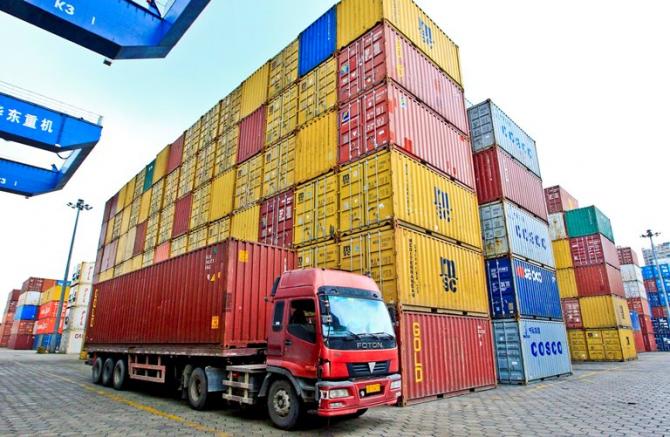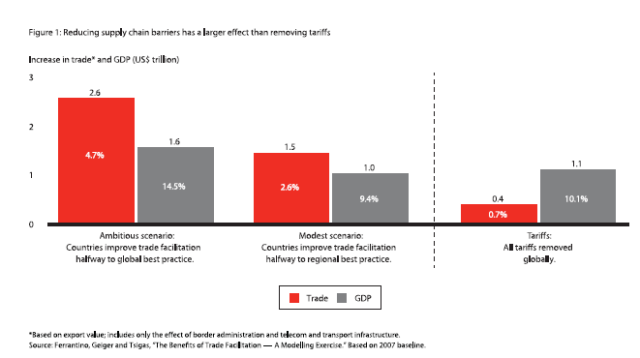
For decades, governments and companies around the world have focused almost exclusively on tariffs as the biggest impediment to global trade. Despite tariffs dropping to a 30-year low, reform efforts have stalled in recent years and international trade remains seriously constrained. A big reason: the inefficiencies and chokepoints that hobble global supply chains turn out to be a much bigger factor than government-imposed tariffs in restricting the flow of goods and services across borders.
Together with the World Bank, Bain & Company has analyzed the business implications of supply chain barriers everything from border delays and inconsistent product regulations to poor infrastructure and rampant corruption — presenting our findings in a report for the World Economic Forum. Our analysis demonstrates that reducing even a subset of these obstructions could increase global GDP over six times more than removing all tariffs (see Figure 1).
That has broad, long-term implications for policymakers, suggesting that governments need to refocus their efforts on creating efficiencies in the supply chain if they want to truly unlock the economic potential of global trade. For companies looking to take advantage of international markets, the message is more immediate: making the right choices about where and how to deploy assets globally requires a full understanding and analysis of how these supply chain barriers affect return on investment. Failing to anticipate the costs and risks involved can wipe out the business advantages of sourcing, operating or selling in foreign markets.

These messages are particularly relevant for Indonesia. While the Indonesian economy has been remarkably successful during the past few years, powered by a large and growing consumer class and sound macroeconomic policies, policymakers need to pay serious attention to the performance of its supply chain. The physical characteristics of the archipelago and the growth of its economy, widely distributed over a vast territory, requires sound infrastructure such as port capacity and roads, as well as efficient systems. Indonesia still has a long way to go.







 resized.png)
